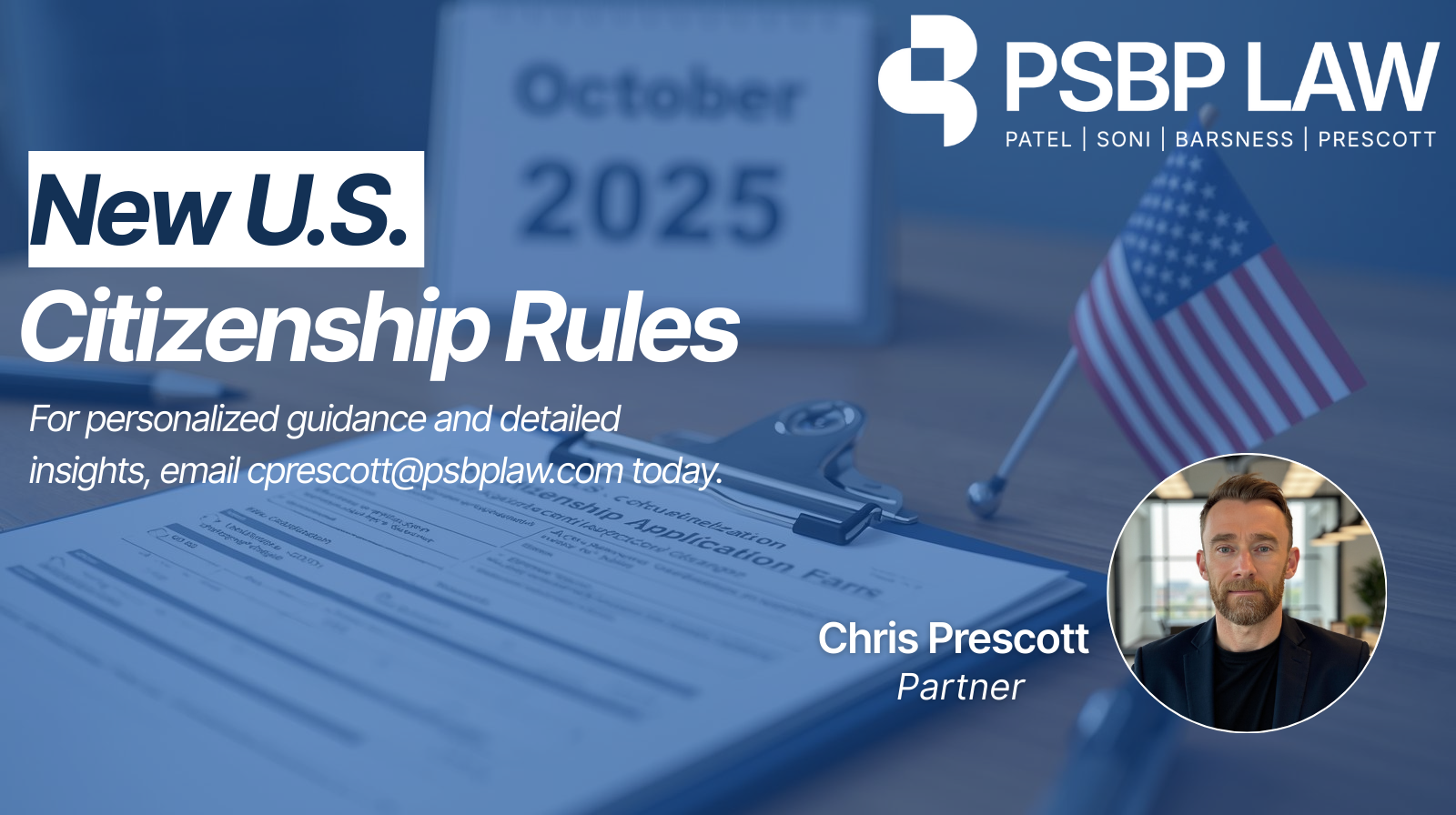For most foreign nationals, applying for Naturalization is the final step in the Immigration process. While holding a green card offers significant stability, it does not provide the full benefits of citizenship. Extended absences from the U.S. (over six months), criminal history, and other factors can jeopardize the ability to maintain permanent residency and renew a green card. In contrast, U.S. citizenship offers additional rights, such as the ability to vote in federal elections and greater security against deportation.
The Trump administration has recently introduced several key measures, which will potentially make it more difficult to become a US citizen.
New Civics Test (Effective October 20, 2025)
The civics test, a key component of the Naturalization process, is aimed at testing an applicant’s knowledge of U.S. history and government. USCIS is replacing the 2008 civics test with a new format, which is a modified version of the 2020 test, introduced under the previous Trump administration.
- Applicants will be asked 20 randomly selected questions out of a possible 128 questions. Compare this with the current interview where applicants are asked a total of 10 questions out of a possible 100.
- Applicants will need to answer 12 questions correctly to pass, compared to just 6 under the current test.
If you file your N-400 before October 20, you’ll stay under the current 2008 test. File after, and you’ll face the tougher version. USCIS is also updating the Naturalization Test and Study Materials, which applicants will need to refer to when preparing for the new test
Stricter Good Moral Character Standard
USCIS has tightened how it evaluates the requirement of good moral character, which is an essential part of the naturalization process. In the past, demonstrating good moral character generally meant showing you had no criminal record, that your taxes were properly filed and paid, and that any child support obligations were met. Officers will now evaluate both positive and negative evidence, not just the absence of crimes.
So what does this mean?
USCIS will now look to see whether applicants have made a positive contribution in the community. USCIS is reviving “neighborhood checks” where officers can interview neighbors, coworkers, or community members to verify a person’s reputation. In our previous article we go into this in more detail and suggest the types of evidence that applicants could can gather in order to be ready for any requests from USCIS.
Conclusion
The recent changes to the naturalization process introduced by the Trump administration mark a significant shift in the path to U.S. citizenship. These changes, including the introduction of a more challenging civics test and a stricter evaluation of good moral character, underscore the administration’s intent to ensure that new citizens are well-versed in American history and values and are positively contributing members of society.
The new civics test, effective October 20, 2025, requires applicants to answer more questions correctly, reflecting a higher standard of knowledge about U.S. history and government. This change aims to ensure that those who become citizens have a deeper understanding of the country’s principles and governance.
Additionally, the revised good moral character standard now requires a holistic assessment of an applicant’s character, considering both positive contributions and the absence of negative behavior. This approach emphasizes the importance of community involvement and personal integrity in the naturalization process.
These changes may present challenges for some applicants, particularly those who may not have previously needed to demonstrate such comprehensive knowledge or community involvement.
If you have any questions regarding the above, please contact PSBP Partner, Chris Prescott, at cprescott@psbplaw.com. Chris leads the PSBP Immigration team and represents individuals and corporate clients in the DFW metroplex and throughout the U.S.
